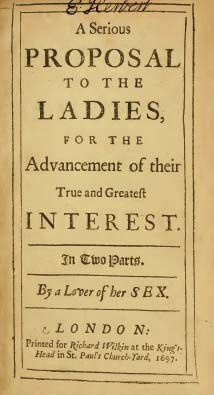Archive for Orthography
May 27, 2018 @ 9:56 am· Filed by Mark Liberman under Orthography, Pragmatics
Alan Levinovitz, "Trump’s bizarre understanding of Capitalization is surprisingly Strategic", Washington Post 5/23/2018:
On Monday, President Trump let loose a string of triumphant tweets about China that featured one of his strangest linguistic quirks:
“On China, Barriers and Tariffs to come down for first time.”
“China must continue to be strong & tight on the Border of North Korea until a deal is made.”
“Under our potential deal with China they will purchase from our Great American Farmers practically as much as our Farmers can produce.”
Rule-bound English speakers only capitalize titles, proper nouns, and a few other exceptional words. But for Trump, Farmers, Barriers and Borders are standard fare. In fact, when it comes to abusing letter case, the China tweets look positively restrained compared to this classic from April: “Despite the Democrat inspired laws on Sanctuary Cities and the Border being so bad and one sided, I have instructed the Secretary of Homeland Security not to let these large Caravans of people into our Country. It is a disgrace. We are the only Country in the World so naive! WALL”
Read the rest of this entry »
Permalink
May 22, 2018 @ 1:22 pm· Filed by Mark Liberman under Orthography, Phonetics and phonology
Read the rest of this entry »
Permalink
March 5, 2018 @ 9:47 pm· Filed by Neal Goldfarb under Orthography, Peeving, Prescriptivist poppycock, Punctuation, Uncategorized
You may have thought that idea of rhinoceroses peeving about semicolons (when they're not snorting and snuffing) was silly. But the comments on Mark's post Peeving and breeding have devolved to a level of even greater silliness: the pressing question of whether to type one space after a period or two.
Read the rest of this entry »
Permalink
December 29, 2017 @ 8:20 pm· Filed by Victor Mair under Alphabets, Orthography, Parsing, Punctuation
From Geoff Dawson:

On display in a current exhibition at the National Library of Australia.
Read the rest of this entry »
Permalink
December 17, 2017 @ 8:37 am· Filed by Mark Liberman under Orthography
TJJ from Napa CA writes:
Dr. Dan Jurafsky at Stanford suggested I contact you. I have a statue I purchased years ago from a Humane Society fundraiser sale. It is made of some sort of stone and has a rabbit on one side and some strange writing on the bottom. It looks like it might be Bengali or Gujarati. I'm curious to know what language it is and what it says but have no idea how to find out.
Read the rest of this entry »
Permalink
October 9, 2017 @ 10:17 am· Filed by Mark Liberman under Information technology, Orthography
Terms and concepts related to "letters" and "characters" were used at spectacularly crossed purposes in many of the comments on Victor Mair's recent post "Twitter length restrictions in English, Chinese, Japanese, and Korean". I'm not going to intervene in the tangled substance of that discussion, except to reference some long-ago LLOG posts on the relative information content of different languages/writing systems. The point of those posts was to abstract away from the varied, complex, and (here) irrelevant details of character sets, orthographic conventions, and digital encoding systems, and to look instead at the size ratios of parallel (translated) texts in compressed form. The idea is that compression schemes try precisely to get rid of those irrelevant details, leaving a better estimate of the actual information content.
My conclusions from those exercises are two:
- The differences among languages in information-theoretic efficiency appear to be quite small.
- The direction of the differences is unclear — it depends on the texts chosen, the direction of translation, and the method of compression used.
See "One world, how many bytes?", 8/5/2005; "Comparing communication efficiency across languages", 4/4/2008; "Mailbag: comparative communication efficiency", 4/5/2008; "Is English more efficient than Chinese after all?", 4/28/2008.
Permalink
April 2, 2017 @ 5:26 am· Filed by Geoffrey K. Pullum under Animal behavior, Errors, Ignorance of linguistics, Orality, Orthography, Writing systems
Many Language Log readers have been complaining about the absence of any recognition of April Fool's Day at this site. I can only lament your lack of perceptiveness. There have been pranks all over the place and you simply didn't see them because you are too gullible.
The primary linguistic one was Victor Mair's amusing spoof post "Sinological suffering", cunningly posted on March 31st to be there when you read Language Log on Saturday morning, April 1st, about an imaginary Chinese character that couldn't be found in dictionaries no matter what lookup method you tried.
Do you really think a writing system could survive if it were so brain-wrenchingly complex, arcane, and impossible to document that there would be written characters that Victor Mair, one of the greatest experts on Asian languages on this planet, could not track down or translate?
Read the rest of this entry »
Permalink
March 31, 2017 @ 12:26 pm· Filed by Victor Mair under Errors, Orthography, Philology, Semantics, Writing systems
Since I became a Sinologist in 1972, hardly a day has passed when I didn't spend an hour or two vainly searching for a character or expression in my vast arsenal of Chinese reference works. The frustration of not being able to find what I'm looking for is so agonizing that I sometimes simply have to scream at the writing system for being so complicated and refractory.
Read the rest of this entry »
Permalink
March 13, 2017 @ 3:43 am· Filed by Geoffrey K. Pullum under Orthography, Spelling, Typography
A truly startling (and surely unintended) hyphenation in the print edition of The Economist (March 11th) suggests that some updating of word-breaking algorithms is in order in the light of the fairly recent practice of inventing product and brand names that have word-internal upper-case letters. An article about juvenile delinquency, reporting that kids are less involved in crime in part because they're indoors playing video games, ends with this paragraph (I reproduce the line breaks and hyphens of the UK print edition exactly, though not the microspacing that justifies the right-hand margin; the only thing I'm interested in is the end of the penultimate line):
The decline in crime among the young
bodes well for the future. A Home Office
study in 2013 found that those who com-
mitted their first crime aged between ten
and 17 were nearly four times more likely to
become chronic offenders than those who
were aged 18-24, and 11 times more likely
than those who were over 25. More PlayS-
tation, less police station.
Read the rest of this entry »
Permalink
March 6, 2017 @ 9:24 am· Filed by Victor Mair under Bilingualism, Borrowing, Orthography, Signs, Topolects, Transcription, Writing systems
This has apparently been around for awhile, but I'm seeing it now for the first time:

Read the rest of this entry »
Permalink
February 7, 2017 @ 7:29 pm· Filed by Mark Liberman under Orthography
Dana Milbank, "Shoker! Rediculous chocker Trump attaks and dishoners English with ever-dummer spellings", Washington Post 2/7/2017:
The English language was unprepared for the attak. It was destined to loose. And, inevitably, it chocked.
The Trump White House on Monday night, attempting to demonstrate that the media had ignored terrorism, released a list of 78 “underreported” attacks. The list didn’t expose anything new about terrorist attacks, but it did reveal a previously underreported assault by the Trump administration on the conventions of written English.
Twenty-seven times, the White House memo misspelled “attacker” or “attackers” as “attaker” or “attakers.” San Bernardino lost its second “r.” “Denmark” became “Denmakr.”
Sounds like one of my LLOG posts before readers step in to help me out.
Read the rest of this entry »
Permalink
December 20, 2016 @ 4:59 pm· Filed by Geoffrey K. Pullum under Dialects, Gift ideas, Grammar, Humor, Intelligibility, Language and advertising, Language and business, Lost in translation, Orthography, Punctuation, Quizzes, Signs, Silliness, Translatese, Translation, WTF
A neighbor of mine, a respectable woman retired from medical practice, set a number of friends of hers a one-question quiz this week. The puzzle was to identify an item she recently purchased, based solely on what was stated on the tag attached to it. The tag said this (I reproduce it carefully, preserving the strange punctuation, line breaks, capitalization, and grammar, but replacing two searchable proper nouns by xxxxxxxx because they might provide clues):
ABOUT xxxxxxxx
He comfortable
He elastic
He quickly dry
He let you unfettered experience and indulgence. Please! Hurry up
No matter where you are. No matter what you do.
Let xxxxxxxx Change your life,
Become your friends, Partner,
Part of life
Read the rest of this entry »
Permalink
November 20, 2016 @ 8:21 am· Filed by Mark Liberman under Orthography, Writing
 Recently, a series of serendipitous connections led me to read Mary Astell's work, A serious proposal to the ladies, for the advancement of their true and greatest interest, first published in 1694. And this experience led me to two questions, the first of which is, Why in the world are Mary Astell's works not available in a readable plain text form, from sources like Project Gutenberg and Wikisource?
Recently, a series of serendipitous connections led me to read Mary Astell's work, A serious proposal to the ladies, for the advancement of their true and greatest interest, first published in 1694. And this experience led me to two questions, the first of which is, Why in the world are Mary Astell's works not available in a readable plain text form, from sources like Project Gutenberg and Wikisource?
Astell's Wikipedia entry explains that she "was one of the first English women to advocate the idea that women were just as rational as men, and just as deserving of education." And she is important enough to merit an entry in the Stanford Encyclopedia of Philosophy, which describes at length her contributions to metaphysics and epistemology.
I know that the first-order reason for this lacuna is that OCR is still pathetically incapable of dealing with 17th-century printing, and that no volunteers have stepped forward to transcribe her writings from the available paper or image sources. But this doesn't really answer the question, it just moves it back a step.
Anyhow, my second question is one that I've wondered about before, without ever trying to find an answer: Why did authors from Astell's time distribute initial capital letters in the apparently erratic way that they did?
Read the rest of this entry »
Permalink


